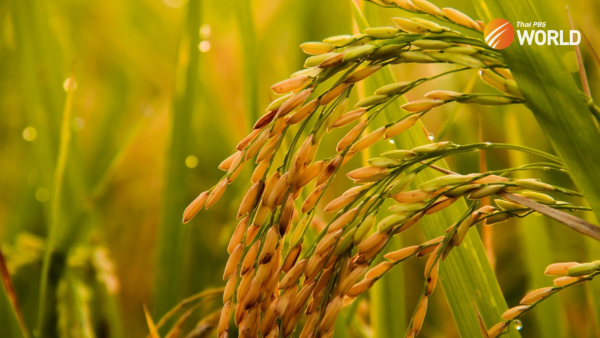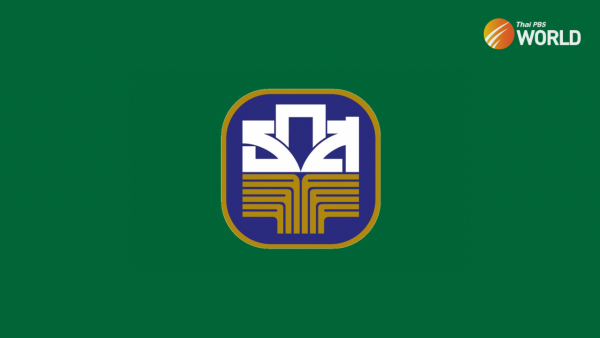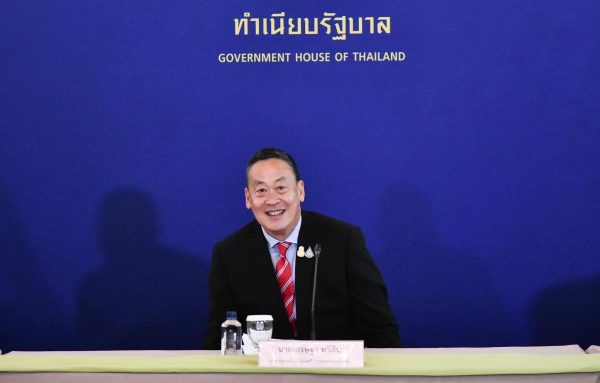Thailand’s “agriculture 4.0” – a dream come true?

Suwit Traichok, a 60-year-old melon producer, was the pioneer of Thailand’s young smart farmers. Despite having a promising career and a decent salary in a well-established organization, Thai Airways International, he quit the job and moved to his hometown, in Ayutthaya province, to pursue his dream job in agriculture.
He started his pilot project on a very small scale on family-owned land. With a degree in Engineering, the farmer’s son knew only practical farming, so he sought theoretical advice from the instructors at Kasetsart University. He returned to his farm to try the methods, then went back to the university and asked again. Combining knowledge in Agriculture, Chemistry and Engineering, he developed his vegetable cultivation techniques, a combination of local wisdom and modern technologies, by himself. After being tried and tested for several years, his efforts eventually paid off.
Now, 30 years have passed, and his melon farm has expanded from 150 square meters to 40 acres. Suwit makes profit every single year.

Thailand’s agricultural sector, using our own technology, generates 8.4% of the country’s GDP and employs 40% of the country’s labour force, making it part of the backbone of the Thai economy.
The primary agenda of the Thailand 4.0 development plan, launched by Prime Minister Prayut Chan-o-cha’s government, is to eliminate social inequality and pull the country out of the middle-income trap. Focusing on ten targeted industries, one of which is efficient agriculture and Biotechnology, Thailand agriculture 4.0 aims to make the most of its abundant resources and add more value to the products through the adaptation and adoption of advanced technologies and innovations for farming, in order to increase quality, uniformity and efficiency.
“This is how I respond to the government policy, Thailand 4.0. Actually, I thought about using technologies on my farm a long time ago, but I was unable to do anything and had to wait as our infrastructure was not ready. Now, we have 4G, and 5G is coming soon. Hopefully, when 5G is available, we can use an IoT controller, which is co-designed by NSTDA (National Science and Technology Development Agency) and myself. If our protocol succeeds, we can save a lot of time and money. Moreover, will be able to make many more controllers for Thai and ASEAN farmers” Suwit said.
One year earlier, the research and development team from NSTDA and Suwit developed a controller-sensor system, connected to a mobile phone application. It allows the user to check the temperature, humidity and solar radiation, as well as remotely activate the drip irrigation and fertigation system.
All the melons are grown in an open field, divided into three stages, namely seed planting and germination, blooming and ready to harvest. Suwit claims that his melon farm is high efficiency farming, yet the one of the lowest investment budget in Thailand.
“A full controller system costs less than ฿100,000. I do not invest much in hardware, because software is much more important and expensive. Most importantly, I became a software expert myself,” Suwit said. “I studied until I knew every single detail about melon growing, for instance good soil preparation, plant diseases and how to control them, also the design of the irrigation system.”
– Super smart farmer –
Nowadays, the majority of Thai farmers earn ฿132,000 per household annually, according to the Office of Agricultural Economics. Smart farmers should be able to increase annual income to more than ฿180,000 per household, equivalent to the minimum wage of fresh graduates. Super smart farmers, however, should make an annual profit of over ฿500,000 per household.
Suwit’s farm produces around 20 tonnes of melons in one harvest, every 15 days. With a wholesale price of ฿50 per kilogram, he generates a handsome amount of revenue every month. As he mainly grows Japanese melons, such as green and orange Pearl Melons and Galia Melons, he co-operates with a Japanese seed company. They help develop melon varieties which are suitable for an open field in Thailand’s climate.
During the winter months, he grows special Earl’s Melon, the price is as high as ฿2,700 ($90) a piece. 90% of the melons go to domestic markets, include modern trade, wholesale and online channels, and another 10% is exported to the Maldives and Germany.
When asked how he sees his melon farm in the next 5 years, Suwit said “in the future my farm will be totally changed, we will not do the same again. It’s because big multinational companies, who own high technology, are now farming against minimal competition. They don’t see us as competitors. Therefore, we have to improve ourselves, learn how to use advanced technology to increase efficiency, use automated drones to spray chemicals, apply IoT and machine learning AI to control the farming. We must transform ourselves to be precision farming”
Recently, a multinational technology company, IBM, purchased the Weather Company, introducing super precise weather forecasting. They also own high-tech apparatus that can analyze data from satellite imagery and from terrestrial sensors. Artificial intelligence, developed by IBM, is capable of tailor-made management models for soybeans, corn, barley, wheat and other crops.
“However, those giant corporations don’t know the local environment, nor the big data. It’s crucial that we must keep the big data with our people, otherwise they will do as we do and become our competitors eventually. I think we should be fast swimming fish, rather than big fish, so that we can survive in a digital world”, Suwit said.
Reporting by Jeerapa Boonyatus






